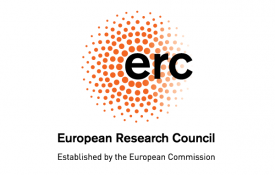-
What Can the Pandemic Teach Us About Human Nature?
It all happened so quickly. In a matter of weeks, our world was upended when a far-flung outbreak spiraled into a genuine pandemic. With vaccines and pharmaceutical interventions still a speck on the horizon, human behavior has become a key factor in battling the disease. The crisis has also pummeled both individuals and society itself with a plethora of mental health burdens, from stress and anxiety to social isolation. Research on COVID-19’s psychological impact is still evolving.
-

APS Reissues Call for Inclusion of Psychological Science Expertise on COVID Advisory Board
Psychological science expertise is critical to the U.S. COVID-19 pandemic response, argues APS in a new letter to U.S. President-elect Joe Biden’s COVID-19 advisory board. As this important board grows, APS repeats a call that a research psychologist be considered for membership.
-

New Guidance on Encouraging Protective COVID-19 Behaviors Among Students
The National Academies of Sciences, Engineering, and Medicine, through its Societal Experts Action Network (SEAN), released a new rapid consultation report titled Encouraging Protective COVID-19 Behaviors Among College Students to provide guidance for the 2021 spring semester.
-

Statement by the ERC Scientific Council on the Horizon Europe Budget
Read a statement from the ERC Scientific Council on the Horizon Europe budget and hear about the latest news.
-
How to Deal With Job Loss Without Damage to Your Self-Esteem
Our careers fulfill a number of different functions in our lives, says David Blustein, a professor of counseling psychology at Boston College and author of “The Importance of Work in an Age of Uncertainty: The Eroding Work Experience in America.” Work helps us satisfy our needs to achieve, earn an income, connect with others and feel like the authors of our own stories, he says. In Western cultures in particular, Dr. Blustein says, our jobs are often so integrated into our identities that it is common to feel as though we have lost some sense of self if we lose them. This can take a toll on your mental health.
-
Do You Miss Hugs?
Not everyone is a hugger. Hugs can feel awkward or uncomfortable for some people. At the same time, hugging can be essential for humans. Hugs can reduce stress by calming our sympathetic nervous system; they can make us feel safe, loved and not alone. ... Research has shown that hugs can lower our cortisol levels during stressful situations, and can raise oxytocin levels and maybe even lower our blood pressure. A 2015 paper published in Psychological Science even found that study subjects who got more hugs were less likely to get sick when exposed to a cold virus than those who weren’t hugged as often. ...

